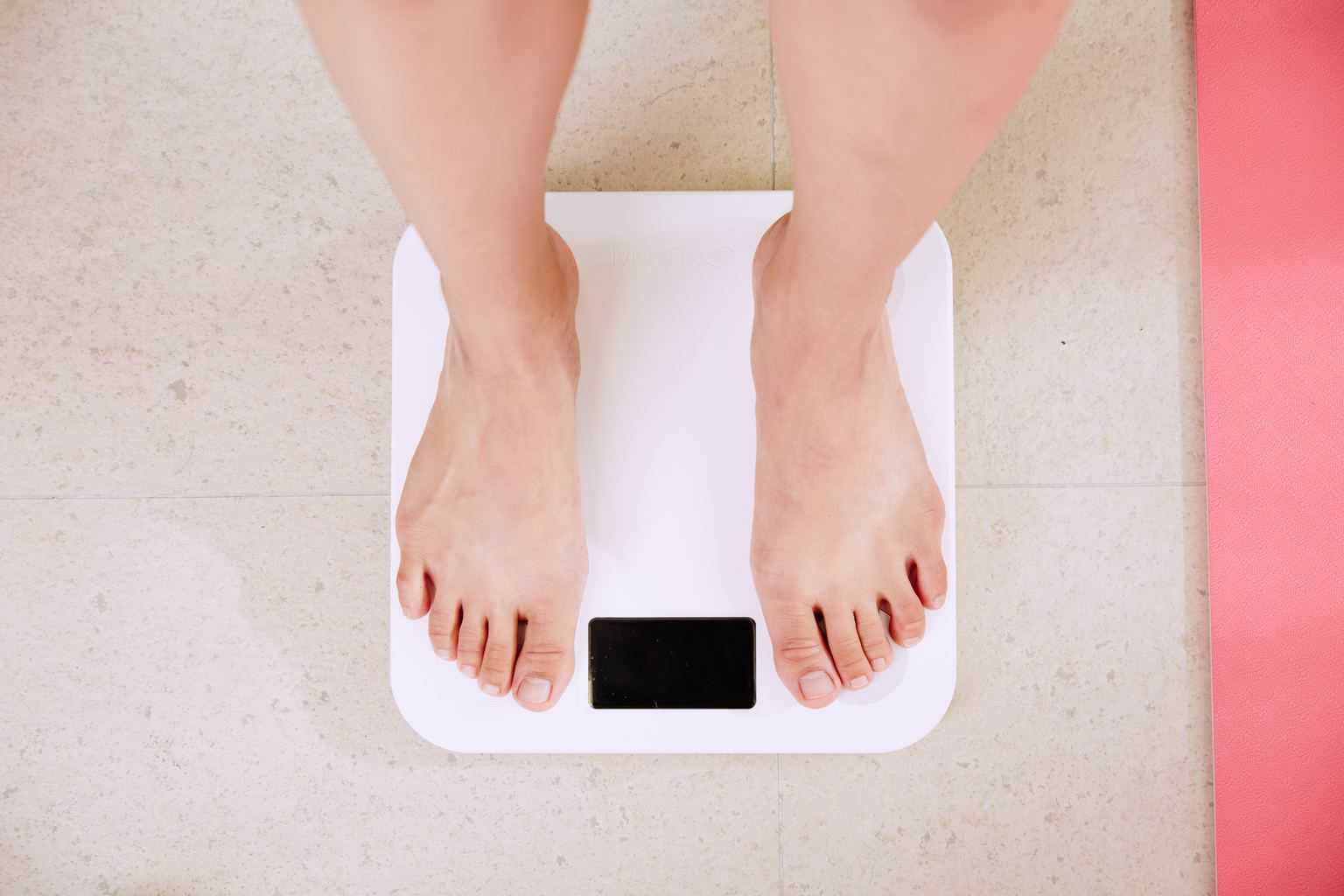- PhentermineLearn more about phentermine and how to get the most from your weight loss journey.
- ResourcesAdditional information and tools to help you make the most of your effort.
- AlternativesLearn more about the most popular weight loss medications and science-backed supplements
The 8 Most Common Reasons for Weight Fluctuation
Published on December 9, 2024

We all get it: being happy doesn’t hinge on the digits flashing on your bathroom scale but on how groovy you feel in your skin. Yet, the urge to sneak a peek at our weight grips us sometimes, just to check in. Loads of people on the quest to drop a few pounds become best buddies with their scales, stepping on it more often than not. Picture this: you jump on the scale, spot a number, and then whoosh! The figure dances, higher or lower, by the day’s end. It’s like you’ve got a thriller happening right in your restroom, sparking a buzz of health-related curiosities in your mind.
What this wild ride of digits signifies will surely catch your attention. Hang tight, because satisfying your curiosity is just around the corner.
The thing that you are experiencing is known as weight fluctuation. And to be honest, there is more than one factor that can contribute to weight fluctuation. In fact, in today’s article, we decided to explain the eight most common reasons for weight fluctuations with the hopes of calming your nerves the next time you experience a weight fluctuation by recognizing at least one of the eight possible reasons for this phenomenon.
Weight Fluctuation – What Is Normal And What Is Most Certainly Not?
We all experience weight fluctuation on a daily level due to various factors that we intend to discuss today. So it is safe to say that weight fluctuation is a normal thing. In fact, five the considered being the magical number when it comes to normal weight fluctuation. It is considered that an increase in the weight by five pounds can be easily interfered with by setting an increase in physical activity and a stricter calorie deficit. It should not take longer than two or three days to recover from that five pounds increase in your weight. This could be normally explained by one of the eight reasons that we are going to discuss in a little while. However, if your weight scale shows a seven-pound jump for longer than, let’s say, a day or two, than perhaps that requires some even stricter measures such as the elimination of alcohol or carbohydrates from your diet, or even, talk with your doctor if you are really worried (1).
The Eight Most Common Reasons For Weight Fluctuations
In the following, we will discuss the eight most common reasons for weight fluctuations. Although these reasons do cause a noticeable change in the numbers on the scale, in most cases, that weight change is not sticking with you forever, which is good news, right? So if you are wondering “why does my weight fluctuating so much?” perhaps the answer is hidden somewhere in today’s article! Now let’s discuss these eight most common reasons for weight fluctuations, and you will soon discover that there is nothing to be worried about!
You are retaining water
Certain foods that contain many sodium, such as processed foods, can quite easily cause you to retain water, and with that cause an increase in your weight. In fact, sodium has an immediate impact on your weight, although only temporary, causing your body to retain more water than usually which will result with an increase in your body weight and a bloated belly. The good news – if it is all well, it will all go away in just a day or two! And if you are interested in avoiding this effect in the future, make sure that you replace the high-sodium food choices such as frozen pizzas, canned beans, smoked meat and fish, canned pasta, etc. and instead you consume as much fresh fruits and vegetables.
You are using certain medications
Certain medications such as those used to treat diabetes, high blood pressure, and mood disorders, are known to interfere with the weight. Some of them are guilty of causing an appetite increase, some cause water retention, while some affect the way that your body absorbs and stores the glucose which as you may know, leads to storing fats especially in your belly area. If you notice a sudden change in your weight after you start taking a new medication, please do talk to your doctor. While this could be totally normal and expected, it can also be a sign that something is just not right. Your doctor is the only one that can decide on this question.
You are expecting your menstrual period
When you are about to get your menstrual period, you are undergoing many hormone changes. Some of these hormone changes are known to cause fluid retention, which interferes with the weight of the person. That is why most women report feeling bloated before and after their menstrual period (2). But that is not all. Weight fluctuations before and after the menstrual period can result from the appetite changes that women experience in these time periods as well. Women report that they are experiencing the urge to eat more frequently or even foods that they do not normally eat a lot more in the period before their menstrual period. This can normally cause an increase in the weight of the individual. But these changes are considered normal. With a little bit of physical activity and calorie restrict, you should notice your weight getting back to normal.
You are under many stress
When we are under many stress, and that happens more commonly than it should, we experience an increase in the stress hormone known as cortisol. Cortisol causes various negative effects, of which one is your blood sugar is converted into fat which is later stored, especially around your belly. This results in a weight increase. So, if you weigh yourself during a stressful period in your life, it is expected that you notice a change in your weight (3). Once again, this is not something that cannot be fixed with a calorie restrict and a little physical activity.
And of course, we recommend trying some of the best relaxation methods such as yoga, meditation, and many quality sleep. Do not let stress affect your life in such a great deal. Be strong and fight it!
You are experiencing changes in your bowel movement
To make it simple – if you are not visiting the toilet on a regular basis to get rid of the waste that is gathering up throughout the day, it is only normal to experience weight fluctuations. If you did not know, our bodies produce more than 125-170 grams of stool each day. Now add that weight to your normal weight day after day as you missed the opportunity to have your normal bowel movement, and you will normally see the increase in your weight. Your weight should get back to normal as soon as you are relieved from constipation (4).
You just ate or drank something before getting up on the scale
If you weigh yourself after you just have had your breakfast, or eaten anything for that matter, or drank a glass of water, you will notice an increase in your weight. And that is totally normal. It has been considered that consuming around two glasses of water can cause an increase in your weight by one pound. But that does not mean that weight increase will stay with your forever. As soon as that food and fluid are all used up, and you have had your normal bowel movement and urine elimination to get rid of the waste material, you will notice your weight going back to normal. That is why we recommend weighing yourself before you have eaten or drank well, anything really. It is always more accurate to weigh yourself on an empty stomach.
You had strength training yesterday
So imagine this – you have gotten up pretty early to prepare yourself a nice, healthy breakfast only to later visit the gym and have an intensive strength training. You have kept away from any unhealthy lunch and dinner choices, and you have prepared these meals on your own. You have even drunk eight glasses of water. So why did you notice an increase in your weight this morning, instead of waking up and noticing the expected reduction in weight? Not to worry – this is totally normal (5).
You see, when you put your body through an intensive strength training, little tears in the muscle fibers happen, which cause inflammation and pain to develop. In order for these tears to be properly fixed, your body needs quality nutrition, rest, and many water. In these moments, your body is actually retaining water to help your muscles recover. And as we mentioned earlier, water retention leads to a higher number on the scale.
So keep calm – your body is just trying to recover, and you will soon notice not only the change in the numbers on your scale but also a change in your body shape. You just have to be patient and dedicated to your new, improved lifestyle.
You weigh yourself at different parts of the day
If you decide on weighing yourself on a daily basis to keep track on your weight loss process, you have to keep all of the weight fluctuation factors in mind and declare a time period in the day when you will weight yourself. If you weigh yourself each day at different times of the day, for example, you weigh yourself one day right after a meal and the next day after you have visited the toilet, you will notice the normal weight fluctuation changes. That is why we recommend weighing yourself every day in the same time period. For the most accurate results, we recommend weighing yourself in the morning, after you have had your daily visit to the toilet but before you have had breakfast or even coffee (6).
Conclusion
Weight is just a number, and it is always more important to feel healthy and happy with yourself rather than trouble yourself with the numbers on the weight scale. But we all have done it at some point in our lives – getting on and off the weight scale with the hope of seeing better results. And often, we discover ourselves feeling disappointed because opposite to the expected, we see our weight going up rather than down.
Well, as you have learned from today’s article, there are eight possible reasons for that annoying weight fluctuations, and perhaps your reason is listed here as well. So keep calm, and think – perhaps it is not that you are not losing weight, perhaps you are choosing a bad time to weight yourself. Or perhaps your constipation is the reason for your weight change. And of course, if you do have further questions, you can always consult your doctor to find out more!
References
(1) https://www.ncbi.nlm.nih.gov/pubmed/12456229
(2) https://www.ncbi.nlm.nih.gov/pmc/articles/PMC3154522/
(3) https://www.ncbi.nlm.nih.gov/pubmed/7773263
(4) https://www.ncbi.nlm.nih.gov/books/NBK323/
(5) https://www.ncbi.nlm.nih.gov/pmc/articles/PMC3544497/
(6) https://www.consumerreports.org/scales/the-best-time-to-weigh-yourself/


